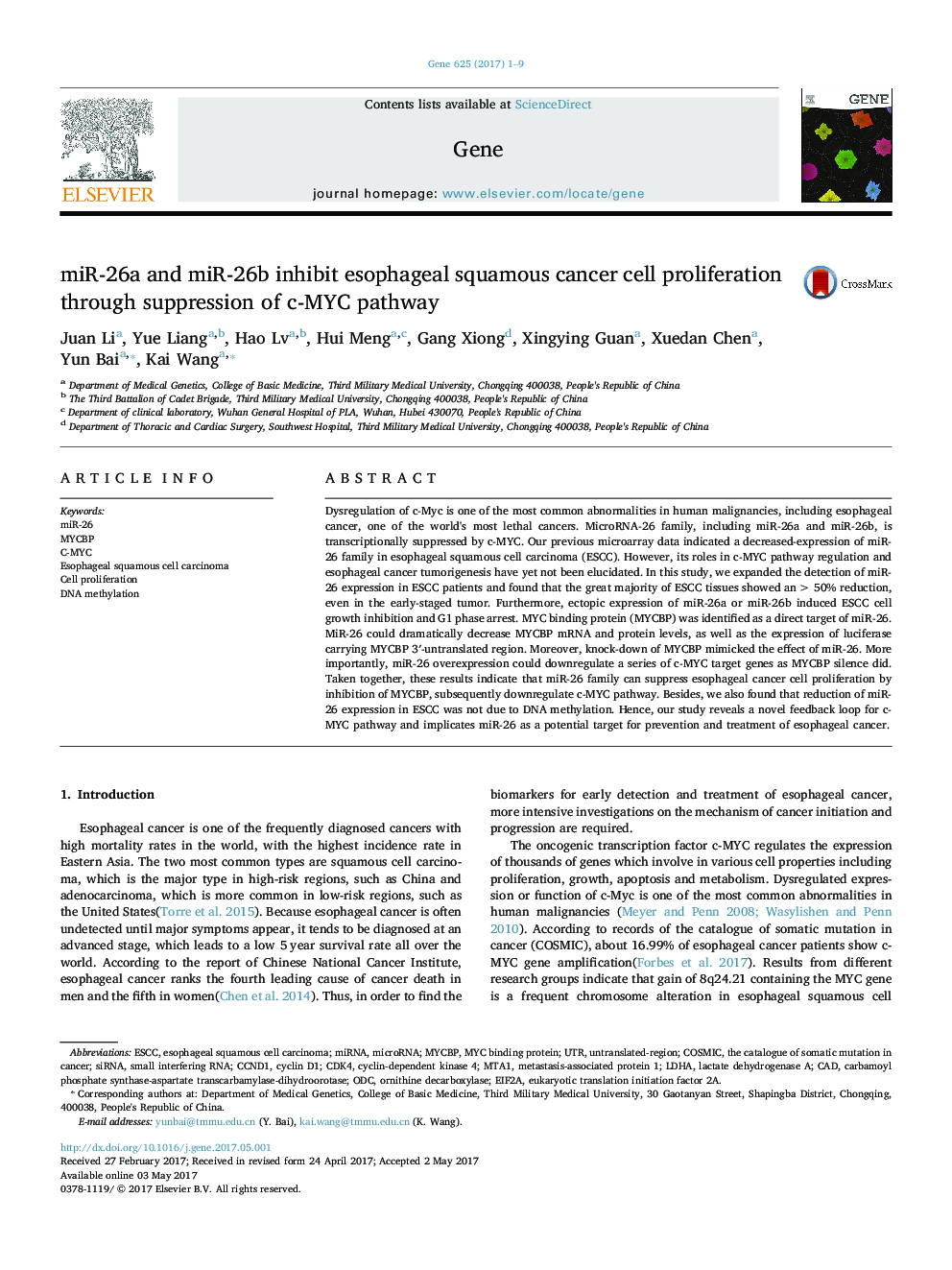| Article ID | Journal | Published Year | Pages | File Type |
|---|---|---|---|---|
| 5589563 | Gene | 2017 | 9 Pages |
Abstract
Dysregulation of c-Myc is one of the most common abnormalities in human malignancies, including esophageal cancer, one of the world's most lethal cancers. MicroRNA-26 family, including miR-26a and miR-26b, is transcriptionally suppressed by c-MYC. Our previous microarray data indicated a decreased-expression of miR-26 family in esophageal squamous cell carcinoma (ESCC). However, its roles in c-MYC pathway regulation and esophageal cancer tumorigenesis have yet not been elucidated. In this study, we expanded the detection of miR-26 expression in ESCC patients and found that the great majority of ESCC tissues showed an >Â 50% reduction, even in the early-staged tumor. Furthermore, ectopic expression of miR-26a or miR-26b induced ESCC cell growth inhibition and G1 phase arrest. MYC binding protein (MYCBP) was identified as a direct target of miR-26. MiR-26 could dramatically decrease MYCBP mRNA and protein levels, as well as the expression of luciferase carrying MYCBP 3â²-untranslated region. Moreover, knock-down of MYCBP mimicked the effect of miR-26. More importantly, miR-26 overexpression could downregulate a series of c-MYC target genes as MYCBP silence did. Taken together, these results indicate that miR-26 family can suppress esophageal cancer cell proliferation by inhibition of MYCBP, subsequently downregulate c-MYC pathway. Besides, we also found that reduction of miR-26 expression in ESCC was not due to DNA methylation. Hence, our study reveals a novel feedback loop for c-MYC pathway and implicates miR-26 as a potential target for prevention and treatment of esophageal cancer.
Keywords
Related Topics
Life Sciences
Biochemistry, Genetics and Molecular Biology
Genetics
Authors
Juan Li, Yue Liang, Hao Lv, Hui Meng, Gang Xiong, Xingying Guan, Xuedan Chen, Yun Bai, Kai Wang,
